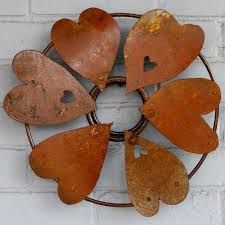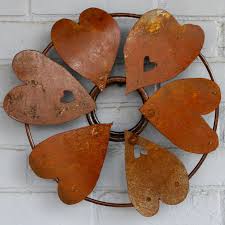#DMTBarberShop
“With little cultural celebration or even recognition, friendships have emerged as the essential twenty-first-century relationship. They are, as Liz Spencer and Ray Pahl said in the subtitle of their book, Rethinking Friendship, our Hidden Solidarities Today.”
That’s what I said, not that long ago, when I published How We Live Now: Redefining Home and Family in the 21st Century. (See the longer excerpt at the end of this post for an explanation of why friendship is the key relationship of our time.) Now, just a few years later, things are changing in heartening ways. Friendship is starting to get the recognition and celebration it deserves.
You can see it in popular culture, in the themes of the latest movies and TV shows. In memoirs and personal essays, grown-ups are pouring out their hearts in tribute to their friends. Or they are sharing the scorching pain of losing a friend. Social scientists haven’t quite caught up; if you skim the titles of scholarly papers about friendship, you might think that friends are just for kids, and scholars of adult relationships still focus overwhelmingly on romantic relationships. But even some of them are starting to see the light.
My favorite indication that friendship may finally be getting its due is “The Friendship Files,” Julie Beck’s ongoing series of in-depth interviews with pairs and groups of remarkable friends, published by the prestigious Atlantic magazine. When she introduced “The Friendship Files” in February 2019, Beck described it as:
“…a weekly conversation between me and two or more friends, talking about the history and significance of their relationship – how they met, the way their friendship evolved over the years, what they mean to one another, that time one of them borrowed a sweatshirt and didn’t give it back for 20 years, and so on.”
Beck recognized that romantic partners have been getting all the attention and respect and celebration, and she sees The Friendship Files as “a corrective to that” and a reminder that friendships “shape and anchor our lives.”
Even though The Friendship Files has only been around for a few months, Julie Beck has already introduced us to a diverse and fascinating collection of friends. They include a group of 14 Vietnam vets who have been enjoying reunions for decades; two women from the Midwest who first connected when one took over the other’s internship at the United Nations; an intergenerational, different-gender friendship forged from a competition on a British baking show; two women who were raised in the Mormon faith and bonded as they left it; co-writers of some of the iconic Sesame Street songs; two young women who are co-pastors at a Lutheran church in Simi Valley, California; two men whose friendship was forged in the days of LGBTQ activism in the 1970s; a group of parents whose kids have all been diagnosed with the same rare disease; and many more.
I think my favorite is the one about a group of about 25 women who met online about a decade ago in the comments section of the Jezebel blog, then moved to other online forums, then starting meeting in person. They’ve enjoyed some amazing vacations. Now they have a Facebook group where someone starts a new thread every day.
Stories of friendship offer so much potential. They don’t devolve into hackneyed narratives, such as the meet-cute genre of romantic relationships. They aren’t limited to just two partners, as most stories of couples are. They are less constrained by age differences. Friends also seem to have more autonomy; other people are less inclined to butt in and try to steer them toward or away from one another. Friends don’t feel the need to ditch an old friend when a new one comes along. Friendships can last for decades or a lifetime, even surviving during periods of sparse contact.
About her experiences writing The Friendship Files, Julie Beck said:
“People are at their most generous, their funniest, and their most fascinating when talking with and about their friends. Doing these interviews has been one of the greatest joys of my career so far, and I can’t wait to do more.”
And I can’t wait to read more, and to share The Friendship Files far and wide. My hope is that this feature will eventually rival or maybe even surpass the popularity of the esteemed Modern Love column at the New York Times. And I hope it will inspire other publications to create their own ongoing tributes to friendship in their own way.

Here’s that excerpt from How We Live Now, explaining why friendship is the key relationship of the 21st century:
The Friendship Model of Twenty-First-Century Relationships
An ideology of marriage and coupling that is celebrated in popular culture is intensive coupling. Couples who invest in it really do see each other as The One.
They look to each other for companionship, intimacy, caring, friendship, advice, the sharing of the tasks and finances of household and family, and just about everything else. They are the repositories for each other’s hopes and dreams. They are each other’s soulmates and sole mates.
A friendship model is about the ones instead of The One. A friendship relationship is usually specialized rather than comprehensive. We can have friends who are great for socializing, others who feed our passion for sports, some who are always there in a pinch, and a few who always know what to say and how to listen. Ideally, friends are not envious of the other friends in our lives; they know that friendship is not supposed to be possessive.
As young adults step into their first marriages at older and older ages (or not at all), as the rate of divorce remains high, and as women continue to outlive men, more and more Americans are finding that they cannot draw a spouse in the center of their social circles—they don’t have one. As more and more individuals live their entire adult lives without ever raising kids, they are finding other people to be there for them in later life—and earlier in their life, too. As family size continues to dwindle, individuals are growing up with fewer siblings—if any. That, too, changes the potential look of the social convoys that accompany contemporary Americans over the course of their lives.
With little cultural celebration or even recognition, friendships have emerged as the essential twenty-first-century relationship. They are, as Liz Spencer and Ray Pahl said in the subtitle of their book, Rethinking Friendship, our Hidden Solidarities Today. National surveys of Americans ranging in age from twenty-five to seventy-four have shown that adults have an average of ten people they see or talk to at least once a week and a few more online-only friends.
The values exemplified by friendship also grew ascendant, as they are the values of modern life. As essayist William Deresiewicz noted:
Modernity believes in equality, and friendships, unlike traditional relationships, are egalitarian. Modernity believes in individualism. Friendships serve no public purpose and exist independent of all other bonds. Modernity believes in choice. Friendships, unlike blood ties, are elective; indeed, the rise of friendship coincided with the shift away from arranged marriage. Modernity believes in self-expression. Friends, because we choose them, give us back an image of ourselves. Modernity believes in freedom. Even modern marriage entails contractual obligations, but friendship involves no fixed commitments. The modern temper runs toward unrestricted fluidity and flexibility, the endless play of possibility, and so is perfectly suited to the informal, improvisational nature of friendship. We can be friends with whomever we want, however we want, for as long as we want. (Emphasis is mine.)
We do not have quite as much free choice in friendship as Deresiewicz suggested. We cannot select friends the way we choose T-shirts—the people we want as friends have to want us back (even on Facebook). He was right, though, that friends become a part of our lives in ways that are different than for biological or adoptive family members or the in-laws who get added to our networks not because we invited them directly but as familial plus-ones. Friends like each other; they want to hear from each other and see each other just because the mere presence of friends is so pleasurable. It is that fondness that is the beating heart of friendship.
[End of excerpt]
I want to share one more excerpt, this one from Singled Out. It is the opening section of the last chapter in the book, “The Way We Could Be.”
In 1999, the Chicago Tribune began printing an occasional series on relationships that continued for years. The relationship partners who were interviewed described how they met, what they valued about each other, and what sealed the relationship. They said the predictable things: “We fell in love.” “We are planning a future together.” “We use the exact same expressions, sighs, and body language without realizing it, often at the same time.” Many experts were consulted. Some of their observations were predictable, too. “They [the partners] are memory banks for each other,” one of them said. Not all parts of the series were about relationships that lasted. Break-ups were described, too. Several people told the reporter that they continued to dream about their partner for years after they split.
In other words, it was just the kind of series that qualifies as utterly ordinary. Except for one thing. The relationships were friendships.
Friendship is rarely taken quite that seriously. It should be.
Finally, for more about friendship in the lives of single people, check out this collection.
Relationships


DMTBeautySpot
via https://DMTBarberShop.com
Bella, Khareem Sudlow


0 comments